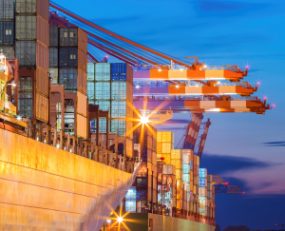
COSCO has made an offer for OOCL worth US$6.3bn, which has been accepted by the management of OOCL’s parent company OOIL. The bid must now be accepted by the minority shareholders and gain acceptance from the regulators. The bid is made in combination with Shanghai International Ports Group which is also a ‘State Owned Enterprise’(SOE).
The suggested deal is generous, at HK$78.67 a share in cash it values the company a third higher than the Hong Kong stock market did last week. In the face of a consolidating shipping sector this must have presented the Tung Family, who founded OOCL and still own most of it, with a powerful incentive to sell. The company was loss making in 2016 and some form of sale appeared inevitable.
Much is being made of the fact that if and when COSCO acquires OOCL it will be the third largest container shipping line, displacing CMA CGM.
COSCO owes its size to its earlier absorption of fellow SOE, China Shipping Container Line, which put it in the big league. Buying OOCL is an important move but it is not as transformative as it might appear. Maersk still controls over 16% of the market, substantially ahead of the 11.6% that the new COSCO may control.
In addition, OOCL and COSCO are quite different. Hong Kong based OOCL is a well-managed company, focussed on customer service and profit. It has had a special interest in developing new information systems. COSCO is a large state-owned organisation heavily influenced by political authorities. Underneath the calculations of size of ships and market share is the issue of integration. Delivering profit in what is still a difficult market will require agility and a willingness to try new things and any new company must offer this as well as a large fleet. Mergers in the container shipping sector can go wrong, as even Maersk has learnt to its cost.
That said, COSCO is very much a product of China’s industrial strategy and – in its willingness to throw cash at problems – the economy’s monetary conditions. It is quite possible that Beijing will see the opportunity to try and control part of the container shipping sector and this will result in a vast expansion of capacity and an attempt to drive other players out of the market, despite the losses incurred to do so. This is usually a disastrous policy in the long-run but if attempted it would have a huge effect on container shipping.
Source: Transport Intelligence, July 10, 2017
Author: Thomas Cullen